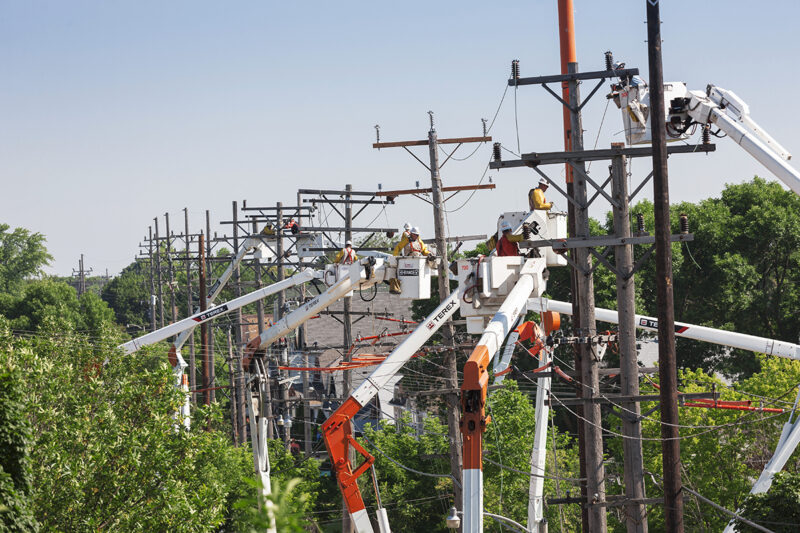

Wisconsin Governor Tony Evers has proclaimed July 10th as Lineworker Appreciation Day in Wisconsin to coincide with National Lineworker Appreciation Day.
Fair Rates for Wisconsin’s Dairyland (FRWD) joins utilities and trade unions across Wisconsin and the nation to honor the highly trained men and women who work in dangerous and difficult conditions to ensure that energy is delivered where and when it is needed.
“Every year on July 10th, we salute these heroes who risk their lives day and night to keep electricity flowing to our homes and businesses,” stated Kathi Kilgore, Executive Director of FRWD. “Whether restoring power during the hot and humid aftermath of severe thunderstorms in the summer or the Arctic cold of winter, Wisconsin’s lineworkers are among our first responders.”
National Lineworker Appreciation Day honors the life and work of Henry Miller. Miller was the first president of the International Brotherhood of Electrical Workers (IBEW), and, on July 10, 1896, Miller tragically lost his life in the field while working to restore a power outage.
While it may take a weather-related power outage to remind people of their dependence on electricity and the importance of lineworkers, each and every day lineworkers are building, maintaining, and enhancing Wisconsin’s electrical infrastructure.
Lineworkers are on the front lines of the clean energy transition underway throughout our state and country. They are adopting and integrating new technology into their daily routines designed to make their work more efficient and the energy grid stronger, more reliable, and more secure. Electric utilities work closely with organized labor to offer training, continuing education, and apprenticeship opportunities.
071023_Proclamation_Lineworker_Appreciation_Day